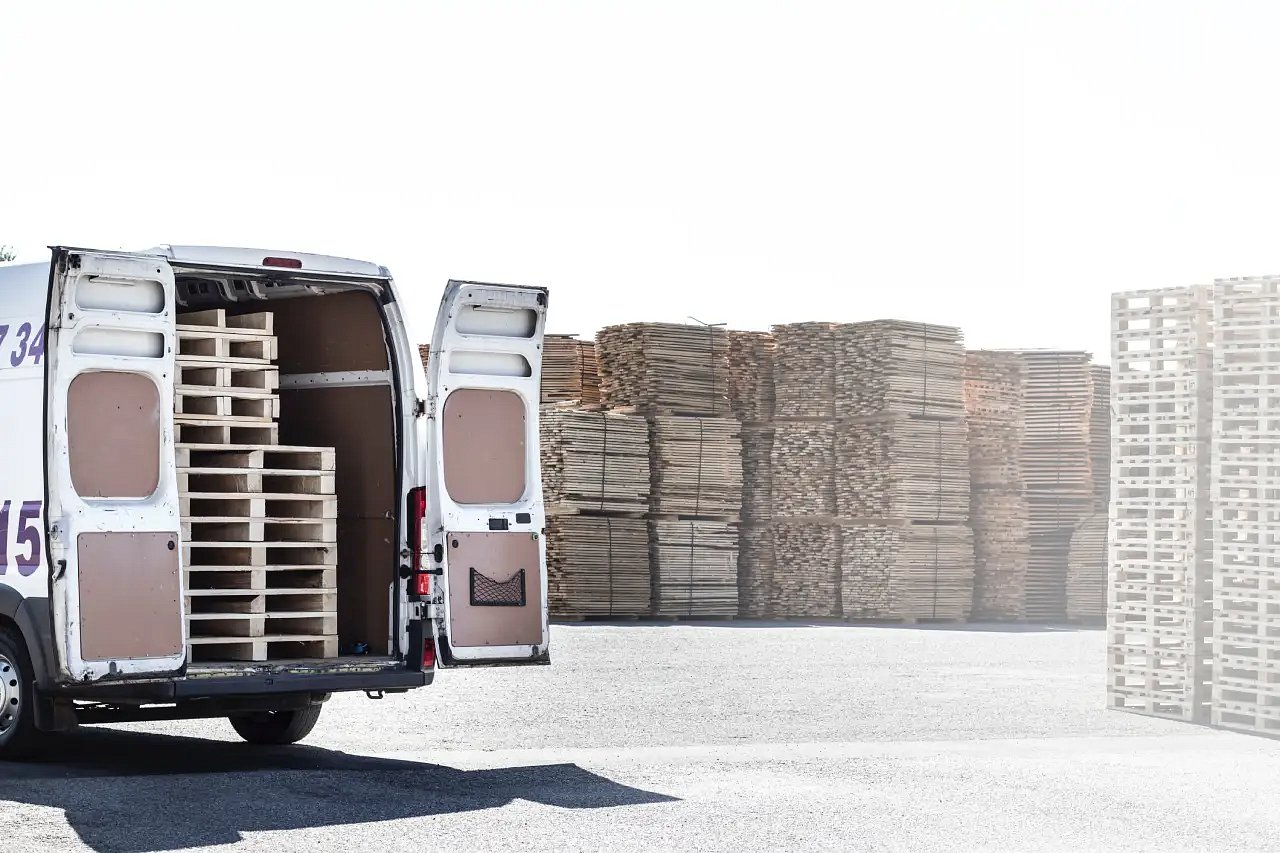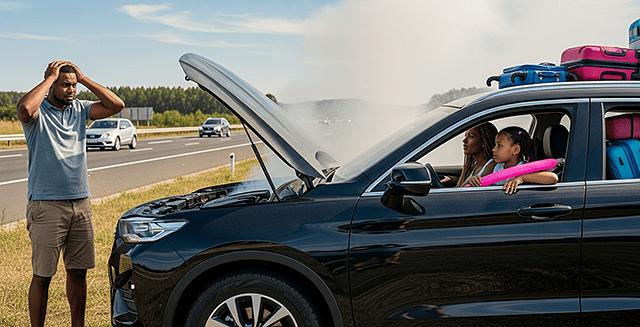Knowledge Hub

A Guide: Commercial Vehicle Insurance for Mid to Small-Size Businesses
Do you own a business vehicle such as a truck, bakkie or panel van or operate a fleet of commercial vehicles? If the answer is yes, you need to have commercial vehicle insurance.
Your vehicles are integral to your business and vitally necessary for smooth functioning. Dialdirect specialises in ensuring that you’re adequately protected in case of damages or accidents involving your vehicles.
That’s why we’ve produced this article — to help you understand the ins and outs of commercial vehicle insurance, including truck insurance. Discover more to make the right decision regarding commercial vehicle insurance.
Difference between personal car & commercial vehicle insurance
It can be confusing to understand the difference between personal car insurance and commercial vehicle insurance, especially when owning smaller cars like sedans and bakkies. Sometimes business owners use their personal vehicles for business purposes — for instance, you may deliver a customer’s product using your personal car to speed up delivery. It’s essential to differentiate between a personal car and a business vehicle when it comes to taking our insurance.
A personal car is a vehicle used expressly for personal reasons, including commuting to work, travelling on a holiday or going to a soccer or rugby game. You’ll need car insurance to cover your vehicle for damage, theft or an accident.
On the other hand, a commercial vehicle performs business activities such as ferrying fare-paying passengers, delivering customers’ goods or transporting employees to a work site. If you own vehicles used for business activities, you need insurance for commercial vehicles. Not only does this type of insurance cover damages, theft and accidents, but it also protects against the loss or theft of the cargo you’re transporting.
Truck insurance and business car insurance tend to be more extensive than personal car cover. Typically, commercial vehicle insurance premiums tend to be higher because your vehicles are likely to be exposed to higher risk; for instance, a commercial truck, lorry or van may transport goods over long distances or on high-risk routes.
That’s why taking out the right cover is important for optimum protection. You don’t want to pay out of pocket for taking the wrong cover because that will reduce your business’s bottom line.
Types of commercial vehicles
There can be confusion about what qualifies as a commercial vehicle. This is particularly true when you use your personal vehicle for business purposes. If you sometimes use your personal car to ferry employees around or attend meetings, it’s advisable to have business car insurance. If you don’t and you have to claim from your insurer in the event of theft, damage or accident, your claim might be rejected.
Some vehicles traditionally perform industrial or commercial functions. Examples include:
-
Construction vehicles: These may be used to construct buildings, roads or other infrastructure. Examples include forklifts, mobile or overhead cranes and bulldozers.
-
Heavy delivery trucks: These trucks carry heavy loads, often for long distances. For instance, they can be used to transport mining or building equipment to work sites.
-
Buses, shuttles, limousines and taxis: These vehicles are often used in the transport industry to convey passengers in exchange for a fee. Shuttles and taxis can be minibuses or passenger vehicles like sedans.
It is important to note that any vehicle is designated as a commercial vehicle if it is used primarily for business purposes and helps to generate income.
Why is it important to have truck insurance?
The logistics and transportation industry in South Africa is massive. In 2020 alone, during tough economic times, it contributed 9.3% to the country’s economy[1]. This wouldn’t have been possible without trucks, both for local and cross-border goods delivery.
There’s no doubt that trucks keep South Africa’s economy running in the right direction. If you own a truck or a fleet of trucks, your business is exposed to various risks, including theft, damage, hijacking, accidents or third-party liabilities.
Statista[2] states that 1,397 trucks were hijacked in 2021 alone, the third-highest since 2009. Seen in another way, this number of hijackings represents an 18.09% increase in the five-year period 2017–2021.
Car insurance does not cover trucks. You will need to purchase truck insurance for a heavy-duty vehicle. Eventualities covered include natural disasters such as floods and fire, and accidental damage and theft.
There are three truck insurance options to choose from:
-
vehicle only — this insurance covers only your truck
-
motor & all risk — this covers your truck and the equipment stored in it
-
motor & goods in transit — this insurance covers your truck as well as goods you transport for your customers
With risks such as bad road conditions and hijackings, having the right truck insurance will help keep business costs down and improve profitability.
In addition, Dialdirect includes Biz Assist in your policy to help with running your business. Bonus services you may access in this programme include financial planning, help with collections and digital marketing assistance from professionals.
What’s covered in commercial vehicle insurance?
Commercial vehicle insurance, like other types of business insurance, does not protect you against all risks. You must know what your policy covers to make claiming stress-free. Some of what is covered may include:
-
Medical expenses: If you or a third party incur medical costs due to an accident you caused, your insurance provides coverage up to a certain limit.
-
Loss or damage due to vandalism, fire, or theft: Commercial vehicle insurance protects if you claim because of damage or loss due to accidental damage, theft, fire or vandalism.
-
Third-party property damage: Your business vehicle may accidentally damage someone’s property, such as a house or car.
-
Natural disasters: No one knows when natural disasters (such as the 2022 floods in KwaZulu-Natal) will happen. Similar floods or natural events such as hail or wind may damage your business vehicles. Your policy will cover losses or damages due to these natural disasters.
-
Loss of or damage to goods in transit: Theft of goods is real, and it can happen to you when you least expect it. Thieves may steal your clients’ goods while you’re transporting them. You'll be financially protected if your policy includes coverage for goods in transit.
-
Windscreen damage: It’s quite common for a vehicle’s windscreen to be hit by a stone while on the road. The windscreen might shatter or develop multiple cracks, making it difficult to drive safely. Your insurer will replace it if your policy covers it.
-
Business interruption: Some losses or damage to your vehicle may halt business operations. Unfortunately, you won’t receive any income until the vehicles are back on the road. In such a case, your commercial vehicle insurer may provide business interruption cover to offset your regular expenses, such as payroll.
There are multiple situations that may lead to a successful claim from your commercial vehicle insurer. It’s best to check your policy and ensure you know what those are for a simplified claim process.
Get insurance for commercial vehicles from Dialdirect
Commercial vehicle insurance is necessary if you want your business to survive. At Dialdirect, we know that accidents happen, and that they can decrease your bottom line. Commercial vehicle cover can protect your mid to small-size business against such difficulties. It’s easy to get your vehicles insured. Simply go online and request a quote.
Sources:
[1] Bridgewater: The importance of the transportation and logistics industry in SA
[2] Statista: Number of truck hijackings in SA
Disclaimer: The information in this article is provided for informational purposes only and should not be construed as financial, legal, or medical advice.

We Have Great
Insurance Products
Need car, home & Life Insurance? We offer a wide range of insurance products. Switch & get cash back on insurance premiums.
Related blogs

Business Made Easy
Unlock your small business super power

Business Made Easy
Law & Order: Defending Your Rights with Comprehensive Legal Cover





